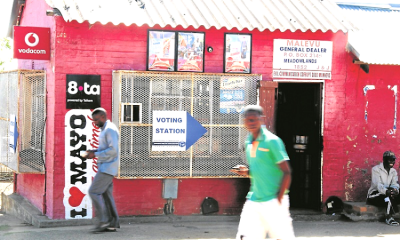Business
Maile Allocates 60% of Gauteng’s Procurement Budget to Local Businesses, Boosting Economic Growth

In a move to support local entrepreneurs and stimulate economic growth, Gauteng MEC for Finance, Lebogang Maile, announced that 60% of the province’s procurement budget—amounting to over R30 billion annually—will be directed towards locally owned enterprises. The announcement was made at the launch of the R500 million Spaza Shop Support Fund (SSSF) in Soweto on Tuesday.
A Boost for Local Businesses
The 60% allocation of Gauteng’s procurement budget represents a significant commitment to local businesses, ensuring that billions of rands will circulate within the province’s economy in the coming years. This initiative is set to provide much-needed support for small, South African-owned businesses and promote economic empowerment at a grassroots level.
Maile emphasized the importance of building productive capacity across Gauteng’s businesses. “Even with that capacity, if we don’t coordinate and align our efforts, it won’t be effective. That’s why 60% of our procurement budget, amounting to over R30 billion annually, will go to locally based enterprises,” he said.
Spaza Shop Support Fund (SSSF): Empowering Small Businesses
A key aspect of this initiative is the Spaza Shop Support Fund (SSSF), designed to support South African-owned small businesses in the retail sector. The fund will provide both financial and non-financial assistance to registered and approved small businesses. Financial support will help with stock and equipment purchases, while non-financial assistance will focus on skills development and regulatory compliance.
The SSSF has already registered over 87,000 spaza shops, with only South African-owned businesses eligible for the fund. Minister for Small Business and Development, Stella Ndabeni-Abrahams, urged spaza shop owners to form networks that can help them compete with foreign-operated stores. “South African-owned spaza shops face intense competition from foreign-operated stores, who use more organized supply chains to gain competitiveness,” Ndabeni-Abrahams said.
Supporting Economic Growth Through Local Businesses
The announcement was welcomed by Johannesburg Mayor Dada Morero, who highlighted the regional benefits of such initiatives. “When Johannesburg grows, Gauteng grows. When Gauteng grows, South Africa grows. And when South Africa grows, the African continent grows,” he stated.
The SSSF will be managed by the National Empowerment Fund (NEF) and the Small Enterprise Development Finance Agency (SEDA), with a focus on helping businesses in township and rural areas thrive. The fund will also encourage these businesses to trade with one another, reducing reliance on imported products and fostering economic cooperation.
Helping Start-ups and Incubating New Businesses
The fund also aims to support the transition of informal traders into the formal economy. “We have incubators that help new and startup businesses,” said Ndabeni-Abrahams. “We can help you from being an informal trader to a formal trader, to start a spaza shop and to own a wholesale or an entire distribution channel.”
This initiative marks a key step in Gauteng’s efforts to empower local businesses and create a more inclusive, self-sustaining economy. By committing to spend a significant portion of the provincial budget on local enterprises, Gauteng is setting a strong example for other provinces and signaling its dedication to growing the South African economy from the ground up.
As the SSSF continues to support small businesses and entrepreneurs, the benefits will ripple through the region, driving growth, creating jobs, and fostering a more resilient local economy for years to come.
{Source The Citizen}
Follow Joburg ETC on Facebook, Twitter , TikTok and Instagram
For more News in Johannesburg, visit joburgetc.com


























